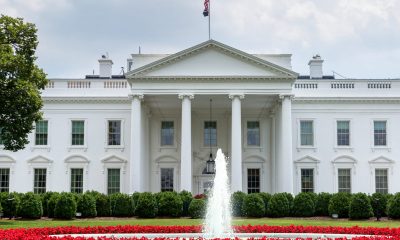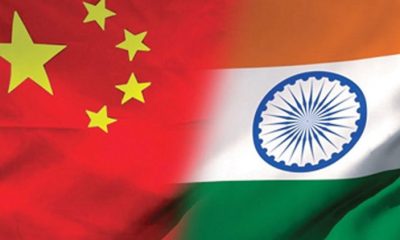World
Don’t throw tantrum after NSG setback: Chinese daily
Beijing: A Chinese daily on Tuesday urged India not to throw tantrum after failing to join the NSG and said Western adulation had made New Delhi “a bit smug in international affairs”.
The Global Times said in a hard hitting editorial that at least 10 countries, not just China, had opposed India’s attempt to become a member of the Nuclear Suppliers Group (NSG) at Seoul last week.
It said India wanted to be the first exception to join the NSG without signing the Nuclear Non-Proliferation Treaty (NPT) and this was what China and other countries did not agree to.
“However, Indian public opinion has reacted quite strongly,” said the Global Times, which is known to reflect the views of the Chinese Communist leadership.
“US backing adds the biggest impetus to India’s ambition. By cosying up to India, Washington’s India policy actually serves the purpose of containing China,” it said.
“The US is not the whole world. Its endorsement does not mean India has won the backing of the world. This basic fact, however, has been ignored by India.”
Saying some Indian accusations do not make any sense, it said New Delhi’s reaction seemed to indicate their national interests can override principles recognized by the world.
“Recent years have seen the Western world giving too many thumbs up to India, but thumbs down to China. India is spoiled.
“Although (India’s) GDP accounts for only 20 per cent of that of China, it is still a golden boy in the eyes of the West, having a competitive edge and more potential compared to China.
“The international ‘adulation’ of India makes the country a bit smug in international affairs…
“Some Indians are too self-centered and self-righteous. On the contrary, the Indian government behaves decently and is willing to communicate. Throwing a tantrum won’t be an option for New Delhi.”
The Global Times pointed out that on Monday the Missile Technology Control Regime absorbed India as a new member and denied China’s access.
“The news didn’t even make a ripple among the Chinese public. The Chinese have become more mature in dealing with these setbacks caused by international relations.
“India’s nationalists should learn how to behave themselves. Now that they wish their country could be a major power, they should know how major powers play their games.”
World
Lockdowns in China Force Urban Communities to Defy Censorship and Vent Frustration Online

Shanghai’s rich middle class is leading a wave of online dissent over the strict and prolonged lockdowns imposed in various parts of the country. Chinese internet censorship is struggling as patience is wearing thin in many urban centers, coming up with creative forms of online protests.
Social Media Posts Revealing Lockdown Tension in Shanghai
Drawn-out lockdowns are nothing new in China as authorities insist with the nation’s zero-Covid policy since the start of the pandemic. Currently over This time around, however, metropolitan areas like Shanghai are increasingly difficult to keep quiet, given that its more than 25 million residents have seen weeks of total isolation along with food shortages and many other service interruptions.
Dozens of towns and reportedly over 300 million Chinese citizens have been affected by lockdowns of different severity. As expected, urban netizens have been most outspoken over their difficulties by finding creative ways to get around state censorship and bans placed on topics, news comments and spontaneous campaigns.
Shanghai residents have been using mobile proxies and hijacking seemingly unrelated hashtags to talk about healthcare issues, delivery failures and the overall severity of their situation. The “positive energy” that the Chinese government wants to transmit during the recent prolonged series of lockdowns does not come naturally to those counting food supplies and online censors are working hard to filter words, trending topics and undesired social media sharing.
WeChat groups and message threads are under constant monitoring. Posts questioning the zero-Covid approach have been quickly deleted, including by leading Chinese health experts like Dr. Zhong Nanshan. Video footage is soon censored and protests and investigations are quickly made to disappear.
Where this has not worked, officials have exposed banners with warnings and outright threats like “watch your own mouth or face punishment”, while drones have been patrolling the city skies. Yet, if anything, this has led to further tensions and unspoken confrontation with Shanghai’s educated and affluent middle class.
Creative Online Solutions Harnessing Civic Energy
Announcements by Chinese social media that they would be publishing the IP addresses of users who “spread rumors” have not helped either. Tech industry research has shown that much of Asia’s tech-savvy population has a habit of using mobile proxies and other privacy tools, quickly finding workarounds to browse the internet freely and talk to the world about the hottest topics.
The sheer volume of forbidden posts is already a challenge for the very censorship system, experts explain. Unable to track all trending hashtags, state workers overlook topics that speak about the US, Ukraine or other popular news. Linking human rights elsewhere to their situation, Chinese online dissidents establish their informal channels and “hijack” the conversation to share personal or publicly relevant information about the Covid suppression in their town.
Sarcastic and satirical posts still dominate. Others hope to evade the censors by replacing words from famous poems or the national anthem. One thing is certain – social media, when harnessed with the right creativity, has proven its ability to mount pressure on the government in even some of the most strictly controlled tech environments like China.
























